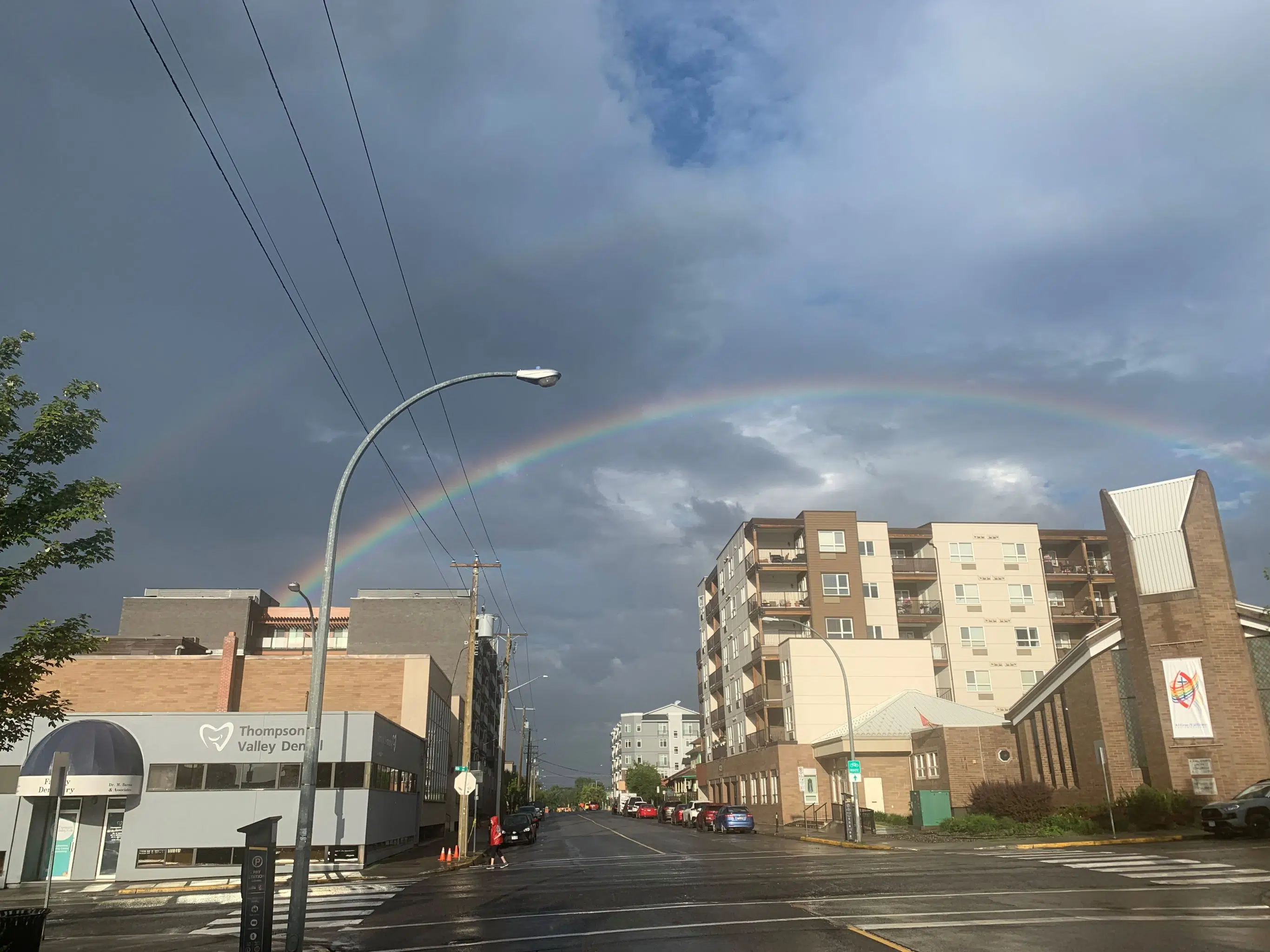
Photo of "Double Rainbow" over Kamloops/via Paul James
While the BC River Forecast Centre is warning of a high-risk of drought across British Columbia this year, it says the rain like we saw in Kamloops on Saturday will help ease concerns.
The warning comes as snowpacks are at extremely low levels following the hottest May on record.
Hydrologist Jonathan Boyd says conditions could improve if we continue to get significant amounts of rain this summer, similar to how things were in 2019.
“We were very, very concerned just four years ago but once we got to July, the rains kicked in and we had one of the lousiest summers in recent memory in terms of just how cloudy and rainy it was,” Boyd said, on NL Newsday. “The positive of that was that it lessened any wildfire risk and really saved us from any major drought concern.”
“We do have to hope that there is a wet August. If we end up having a situation like last year, where the summer and fall was as dry and as warm as it was, then we could be getting into a stage where its potentially like its never before seen drought and low flow conditions.”
As of June 1, the River Forecast Centre said the South Thompson basin was at 33 per cent of normal, down from 74 per cent, while the North Thompson basin was at 16 per cent, down from 61 per cent.
Both the North and South Thompson river basins are currently at drought level two, which means that while adverse impacts to socio-economic or ecosystem values are unlikely, local water restrictions will be brought in where appropriate.

Photo via BC River Forecast Centre
B.C. has six total drought levels, with zero meaning there is sufficient water to meet needs and five means that adverse impacts are almost certain.
“It comes down to a combination of several factors,” Boyd said, of the current situation. “One is going back to last summer and fall and just how dry it was. The second aspect is that the snowpack wasn’t necessarily the highest and we didn’t get as much of the atmospheric rivers that we got the year before, so that actually kept the province drier than normal.”
“And then this extreme heat in mid-May had led to potentially the most rapid melt that we’ve seen provincewide.”
For the latest on drought conditions in British Columbia, go here.

BC Drought Levels as of June 8, 2023 (Photo via BC River Forecast Centre)













